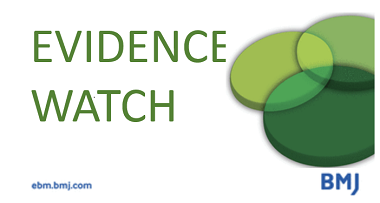EBM students, if you haven’t already seen this paper then it’s a must-read: Why Did the Randomized Clinical Trial Become the Primary Focus of My Career?
Carl Heneghan

The late David Sackett, the first Director of CEBM, undertook, wrote about and researched the methods of randomized controlled trials for most of his career. Why? Largely because at the start of his career he was so ‘worried’ about the overuse of clinical observations to inform treatment effects that were causing substantial harms.
This paper, published in Value in Health, sets out four concerns about observational evidence that requires randomised trials to negate them. His worries were:
Worry 1: I Became Worried That Clinicians Might Preferentially Give New Treatments to Patients with Better Prognoses
Worry 2: I Became Worried That Compliant Patients Might Have Better Prognoses, Regardless of Their Treatment
Worry 3: I Became Worried That Patients Who Liked Their Rx Might Report Better Outcomes Unrelated to the True Efficacy of Their Treatments
Worry 4: I Was Worried That Clinicians Who Liked Their Rx Might Report Spuriously Better Outcomes Among Patients Who Received Them
In his conclusions, Dave points out that ‘the proponents of observational studies of efficacy have developed strategies and tactics for avoiding and/or overcoming these four worries that have forced me into hard RCT labor for the past 48 years. Indeed, I am curious as to how they will (and could) tell whether they have avoided or solved them.’
Given the current epidemic of published observational studies for informing treatment effects, I think it’s about time to revisit David Sackett’s four worries and whether current research addresses them.
References
Why Did the Randomized Clinical Trial Become the Primary Focus of My Career? Sackett, David L. Value in Health , Volume 18 , Issue 5 , 550 – 552
BMJ Evidence-Based Medicine – original evidence-based research, insights and opinion
Read more in the Welcome to BMJ Evidence-Based Medicine Editorial.

Competing interests
Carl has received expenses and fees for his media work including BBC Inside Health. He holds grant funding from the NIHR, the NIHR School of Primary Care Research, The NIHR Oxford BRC and the WHO. He has also received income from the publication of a series of toolkit books. CEBM jointly runs the EvidenceLive Conference with the BMJ and the Overdiagnosis Conference with some international partners which are based on a non-profit model.